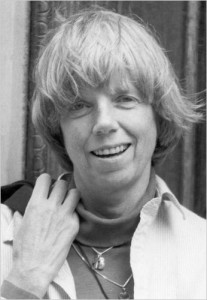A Quote by Thomas Jefferson
The true fountains of evidence [are] the head and heart of every rational and honest man. It is there nature has written her moral laws, and where every man may read them for himself.
Related Quotes
Our passions are the chief means of self-preservation; to try to destroy them is therefore as absurd as it is useless; this would be to overcome nature, to reshape God's handiwork. If God bade man annihilate the passions he has given him, God would bid him be and not be; He would contradict himself. He has never given such a foolish commandment, there is nothing like it written on the heart of man, and what God will have a man do, He does not leave to the words of another man. He speaks Himself; His words are written in the secret heart.
Man—every man—is an end in himself, not a means to the ends of others; he must live for his own sake, neither sacrificing himself to others nor sacrificing others to himself; he must work for his rational self-interest, with the achievement of his own happiness as the highest moral purpose of his life.
Every man that tried to destroy the Government, every man that shot at the holy flag in heaven, every man that starved our soldiers... every man that wanted to burn the negro, every one that wanted to scatter yellow fever in the North, every man that opposed human liberty, that regarded the auction-block as an altar and the howling of the bloodhound as the music of the Union, every man who wept over the corpse of slavery, that thought lashes on the naked back were a legal tender for labour performed, every one willing to rob a mother of her child - every solitary one was a Democrat.
The moral justification of capitalism does not lie in the altruist claim that it represents the best way to achieve 'the common good.' It is true that capitalism does -- if that catch-phrase has any meaning -- but this is merely a secondary consequence. The moral justification for capitalism lies in the fact that it is the only system consonant with man's rational nature, that it protects man's survival qua man, and that its ruling principle is: justice
Condemn no man for not thinking as you think. Let every one enjoy the full and free liberty of thinking for himself. Let every man use his own judgment, since every man must give an account of himself to God. Abhor every approach, in any kind or degree, to the spirit of persecution, if you cannot reason nor persuade a man into the truth, never attempt to force a man into it. If love will not compel him to come, leave him to God, the judge of all.
Nature has given to each conscious being every power she possesses, and one of these abilities is this: just as Nature converts and alters every obstacle and opposition, and fits them into their predestined place, making them a part of herself, so too the rational person is able to finesse every obstacle into an opportunity, and to use it for whatever purpose it may suit.
No man could bring himself to reveal his true character, and, above all, his true limitations as a citizen and a Christian, his true meannesses, his true imbecilities, to his friends, or even to his wife. Honest autobiography is therefore a contradiction in terms: the moment a man considers himself, even in petto, he tries to gild and fresco himself. Thus a man's wife, however realistic her view of him, always flatters him in the end, for the worst she sees in him is appreciably better, by the time she sees it, than what is actually there.
































